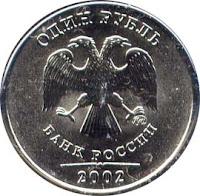 Russia may be preparing a very unusual response to the British actions to expel Russian diplomats and tighten visa regulations amid the Litvinenko affair and Lugovoi extradition. As The Times reported today, apparently the British airforce was ready to intercept two Russian bombers on Tuesday who were very close to breaching British airspace.
Russia may be preparing a very unusual response to the British actions to expel Russian diplomats and tighten visa regulations amid the Litvinenko affair and Lugovoi extradition. As The Times reported today, apparently the British airforce was ready to intercept two Russian bombers on Tuesday who were very close to breaching British airspace.
Two Tu95 “Bear” bombers were dispatched from their base on the Kola Peninsula in the Arctic Circle and headed towards British airspace.
Russian military aircraft based near the northern port city of Murmansk fly patrols off the Norwegian coast regularly, but the RAF said that it was highly unusual for them to stray as far south as Scotland.
Two Tornado fighters, part of the RAF’s Quick Reaction Alert, took off from RAF Leeming, in Yorkshire, to confront the Russian aircraft, after they were shadowed by two F16s from the Royal Norwegian Air Force, The Times has learnt.
“The Russians turned back before they reached British airspace,” an RAF spokesman said.
The newspaper was quick to say there was no evidence to suggest the incident was related to the chilling of relations which has accelerated over the past week, but it is a damn big coincidence. The Russian airforce chief colonel-general Zelin denied reports of Russian long-range bombers approaching close to or breaching foreign airspace yet confirmed that bombing divisions were performing the usual exercises to train the crews for long-range operations.
General Zelin also found the RAF statements of Russian planes changing their course after seeing RAF planes as nonsense, as such operations are planned several months in advance and have nothing to do with politics.
According to Russian daily
Vzglyad this was the second such incident since the end of the Cold War; the first occurred this spring, which downplays the coincidence aspect of the situation.
The Tu-95 long-range bomber is a very old airplane and has been in service in the Russian air force for over 50 years now, yet it still has a range of 15,000 km. Unlike the
Tu-160 which is considered the core of Russian long-range aviation, the Tu-95 is expected to be in service till 2010 and maybe for a few years after.










.jpg)



